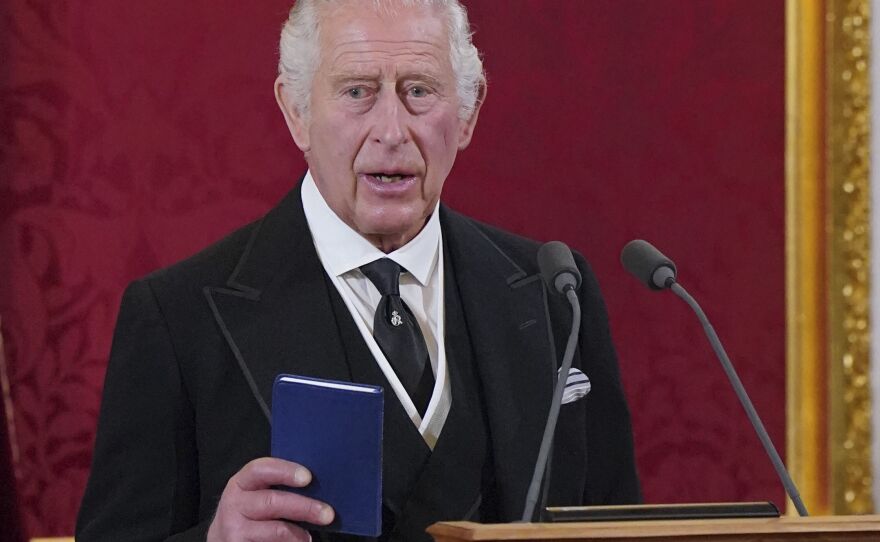Kamila Saradpon is a nine-year-old from National City who enjoys art and cooking with her dad. Her parents Maria and Kris have their hands full with Kamila and her six-year-old sister Mikayla. One of their favorite things to do as a family is go to Seaport Village.
"Our girls love the carousel there," Kris Saradpon said. "We love to take in all of the sunshine because of the sunshine tax here."
The family loves going to the beach nearly every week. Kamila said she also enjoys spending time at home playing games.
"Life, monopoly, charades and some other stuff like that," Kamila said.
Something that separates Kamila from other third graders is the number of blood transfusions she has had.
"I’ve had 154," Kamila said.
"155," Maria interjects.
Kamila was born with the blood disorder thalassemia. It is an inherited condition and results in fewer healthy red blood cells delivering oxygen to the cells resulting in feeling tired, weak and short of breath. Ever since Kamila was two months old, she’s had to get regular blood transfusions at Rady Children’s Hospital.
"At first it’s a little scary," Kamila said about the blood transfusions. "But after a while it becomes fun because then you get to know all the nurses and everyone there."
Those who are chronically transfused like Kamila depend on getting the right blood match. There are so many different combinations with eight blood types, 30 different blood groups and hundreds of so-called-antigens. If everything does not match up, a person's immune systems can reject the transfusion and they can have reactions varying in severity including life-threatening complications.
"It’s called alloimmunization," said Nikhil Nayak, the San Diego Blood Banks chief business officer. "It recognizes foreign substances or something that’s typically not from you inside and so your blood and body start rejecting it."
Nayak said that is where "precision blood" comes in. It is a testing process the blood bank is expanding to try and get patients like Kamila the closest blood match possible.
"(Kamila's) mom confirms the doctors are saying she’s starting to develop antibodies and the (blood) supply is starting to get a little squeezed in terms of who she can get blood from," Nayak said.
That is why Kamila’s mom, Maria, said her daughter needs the closest blood match possible for every transfusion.
"It’s scary to think about. If she’s going to be transfusion-dependent her whole life, and the donor pool is smaller, if she doesn’t have a matched donor then she can’t have the treatment that she needs to live," Maria said. "So we’re grateful for the precision blood."
Currently the blood bank does around 15,000 precise blood tests per year. The process involves about nine hours of DNA sequencing. Nayak said they want to increase that number to 50,000 per year, expanding it from the chronically transfused to all patients needing blood. He said clinical trials are underway to bolster the case that precise blood matching is better for patients. To increase the testing, Nayak said more hospitals and blood centers will need to participate in the program. In San Diego County, Rady Children's Hospital and Kaiser are participants.
"And why they would adopt this?" Nayak asked. "If they see that, 'Hey this is really able to make a difference.' You’re able to find rare (blood) but beyond that you’re actually able to better match blood and my recipients — whether chronically transfused or even patients that came in for one transfusion — had a better quality transfusion."
The process of identifying good blood matches starts in the blood bank's laboratory. Scientists sequence patient and donor blood, hoping to find the closest matches possible. Nayak said they rely on a diverse donor population.
"At the end of the day precision blood works because if a blood donor looks more like the recipient genetically — and often times that’s from your ethnic background — it’s more likely that the transfusion will be successful," he said.
Kamila and her family have not met any of her donors yet. But that does not stop them from thanking those willing to give blood.
"I’d like to say thank you for donating blood today," Kamila said to a donor sitting in a chair at the San Diego Blood Bank.
Kamila's parents call the donors helping to keep their daughter healthy "superheroes."
"They do it out of the goodness of their hearts and so for us it’s very touching," Kris Saradpon said. "We’re just so blessed and thankful for our community."
Kamila is already thinking about what she wants to do when she grows up. Her dad is a culinary instructor and she wants to follow in his footsteps.
"I kinda want to be a chef like daddy," she said.
Kamila also wants to ask the community to, "please donate blood" for her.
-
The San Diego Blood Bank is working to expand a program that better matches donated blood with patients in need.
-
Officially, the U.S. dumped the English monarchy more than 200 years ago. But for some reason, we still can't get enough.







